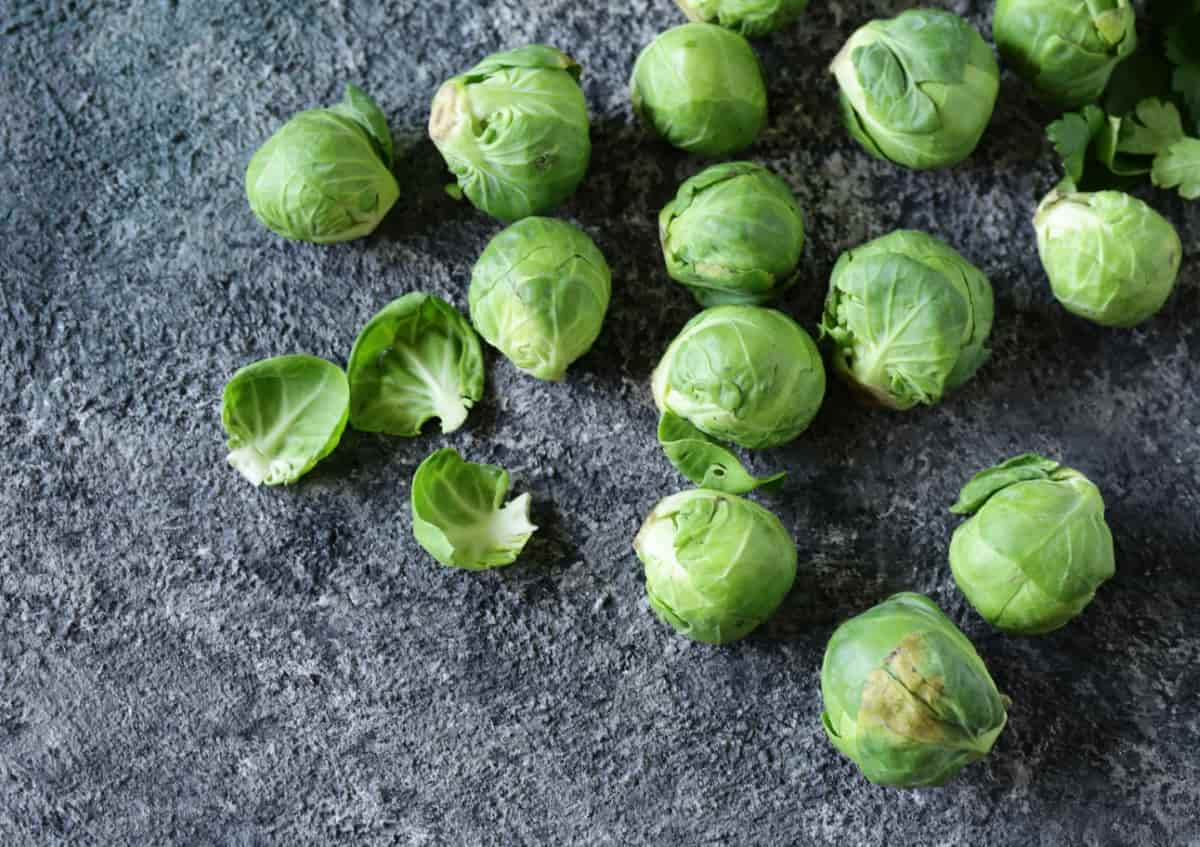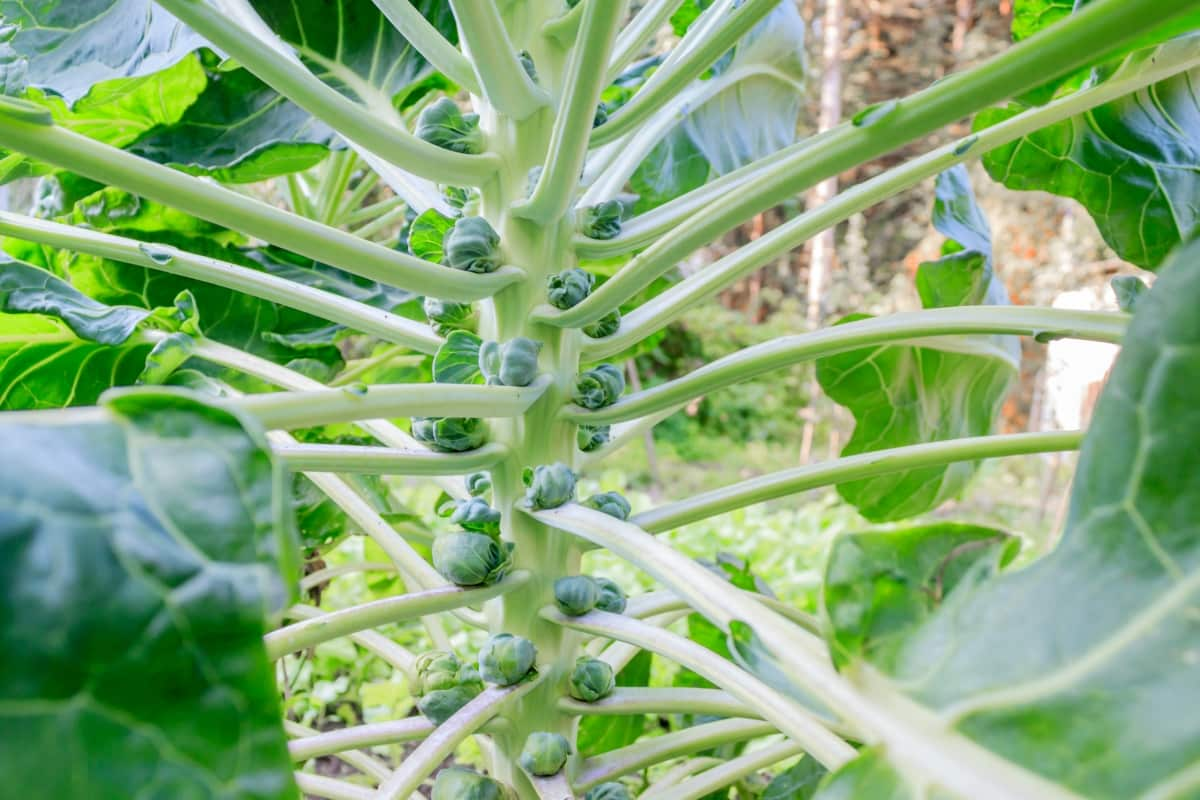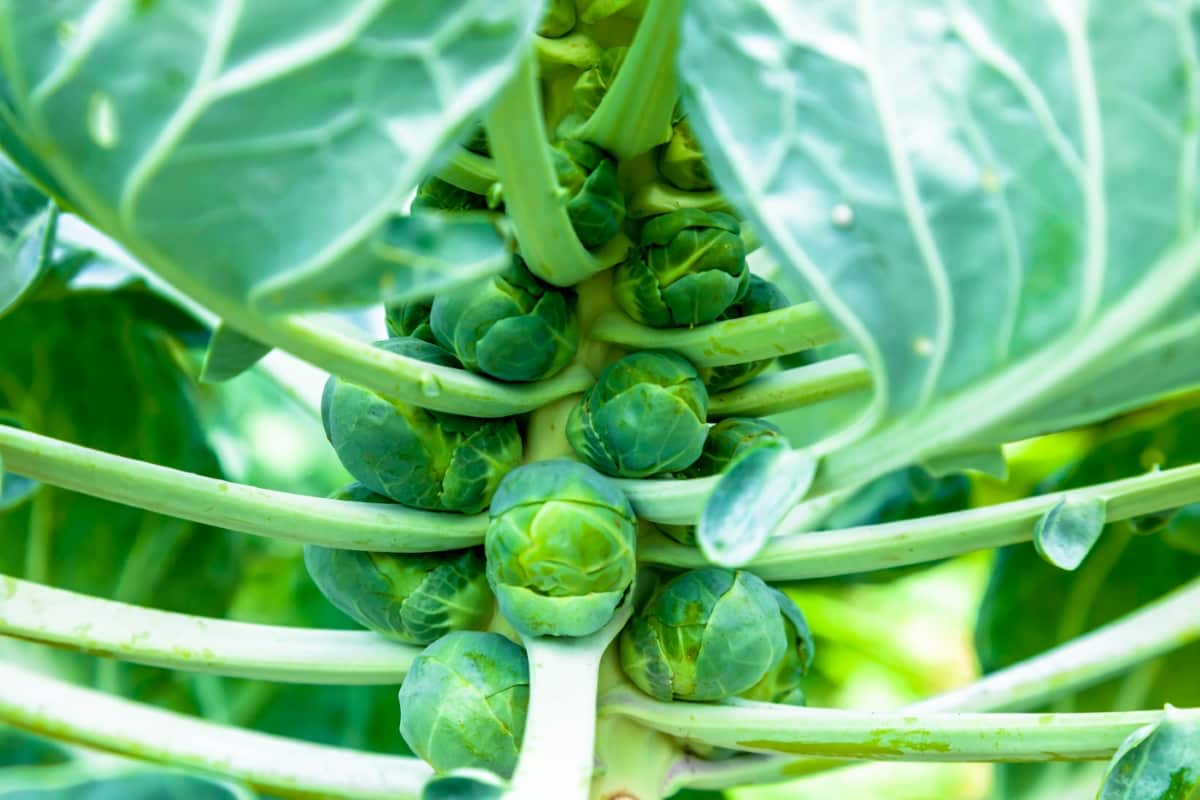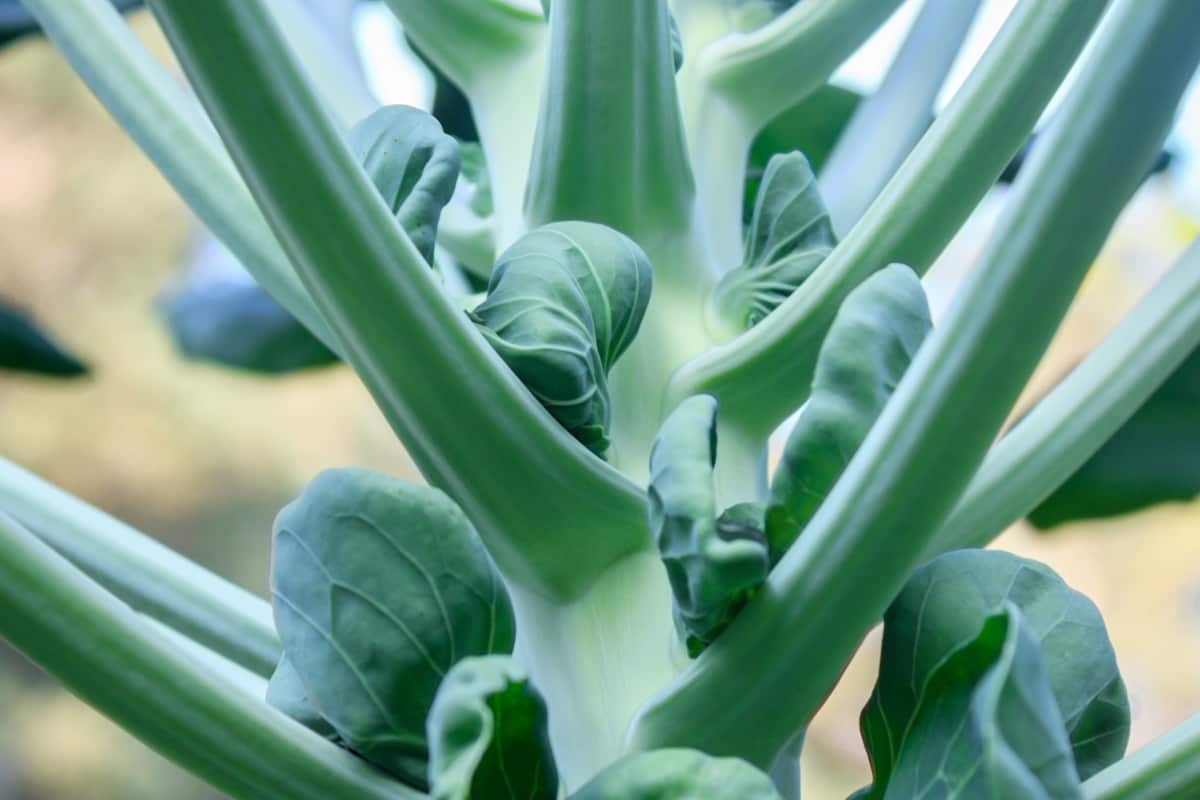Growing Brussels sprouts organically offers a rewarding experience, providing a sustainable way to enjoy this nutritious vegetable. From selecting the right varieties to implementing effective organic practices, this guide covers key aspects to ensure a successful harvest.

Organic Brussels Sprouts Cultivation
Ideal Growing Conditions for Brussels Sprouts
To grow Brussels sprouts organically, especially indoors or in pots, it is crucial to understand their ideal growing conditions. Brussels sprouts thrive in a climate that offers cool temperatures, as they develop their best flavor when exposed to light frosts. The key is to ensure a growing environment that mimics their natural cool season. When considering how to grow Brussels sprouts in pots, select a location that receives ample sunlight, at least 6 to 8 hours daily, but also provides some shade during the hottest part of the day.
Adequate spacing is vital for air circulation, which is particularly important for indoor cultivation to prevent brussel sprout growing problems such as fungal diseases. The ideal temperature for optimal growth falls within the range of 60°F to 65°F, but they can still thrive in slightly colder conditions. Bear in mind the Brussels sprouts growing stages, as these plants take time to mature, typically requiring a growing period of around 26 to 31 weeks from seed to harvest.
Select the Right Varieties for Organic Brussels Sprout Cultivation
Selecting the right varieties is a fundamental step in organic Brussels sprout cultivation. There are numerous varieties suitable for organic gardening, each with its unique characteristics like size, flavor, and maturation time. When choosing varieties, consider how long it takes to grow brussel sprouts, as different types have varying growth durations.
Fast-maturing varieties are ideal for shorter growing seasons or for growing Brussels sprouts organically indoors. Look for disease-resistant varieties to minimize brussel sprout growing problems. Some popular varieties for organic cultivation include ‘Long Island Improved,’ ‘Jade Cross,’ and ‘Diablo,’ known for their flavor and hardiness. This selection phase is crucial in determining the success of your Brussels sprouts garden.
Prepare the Soil for Organic Brussels Sprout Cultivation
Soil preparation is a cornerstone of successful organic Brussels sprout cultivation. Brussels sprouts prefer well-drained, fertile soil with a pH between 6.0 and 7.0. Start by enriching the soil with organic matter such as compost or well-rotted manure, which provides nutrients and improves soil structure.
In case you missed it: Brussels Sprouts Growing Stages: Brussels Sprouts Growth Time Lapse

This step is particularly important when figuring out how to grow Brussels sprouts in pots, as potting soil needs to be nutrient-rich and well-aerated. Ensure the soil is loose and free of clumps or stones to facilitate root growth. A well-prepared soil fosters healthy growth and helps mitigate common brussel sprout growing problems.
Plant and Transplanting Brussels Sprouts in an Organic Garden
The process of planting and transplanting Brussels sprouts in an organic garden is a critical phase in their cultivation. To successfully cultivate Brussels sprouts from seeds, commence the germination process indoors roughly 6 to 8 weeks prior to the anticipated final frost date. Utilize seedling trays filled with organic seed starting mix for sowing the seeds, ensuring they remain adequately moist for germination. Once the seedlings reach a height of 4 to 6 inches and develop several true leaves, they can be safely relocated to an outdoor environment.
This step is also applicable when transplanting into pots for those looking into best practices to grow Brussels sprouts organically in pots. Plant the seedlings at a spacing of 18 to 24 inches apart, as crowded plants are more susceptible to disease and yield smaller sprouts. Acclimate the young plants by slowly introducing them to outdoor weather conditions over a period of one week. This helps minimize the stress they experience during transplantation.
Implement Organic Pest and Disease Management
Organic pest and disease management is essential in growing Brussels sprouts. Since Brussels sprouts are prone to pests like aphids, caterpillars, and cabbage loopers, it’s important to monitor plants regularly. Implementing organic control methods such as introducing beneficial insects like ladybugs or using neem oil can effectively manage these pests.
To prevent diseases, practice crop rotation, avoid overhead watering, and maintain proper spacing for air circulation. Organic mulching can help in retaining moisture and suppressing weeds. By adopting these organic practices, you can address brussel sprout growing problems effectively and ensure a healthy crop.
Provide Water and Nutrients for Organic Brussels Sprouts
Providing adequate water and nutrients is vital for the healthy growth of organic Brussels sprouts. They require consistent moisture, especially during their growth and sprout development stages. Water the plants deeply and regularly while ensuring the soil is well-drained to prevent root rot.
In terms of nutrients, Brussels sprouts are heavy feeders. Apply an organic, balanced fertilizer, like a fish emulsion or a seaweed-based product, every four to six weeks. This is especially important when growing Brussels sprouts in pots, as nutrients in potting soil can deplete faster.
Pruning Techniques for Organic Brussels Sprout Growth
Pruning is an important technique in organic Brussels sprout growth, enhancing sprout size and quality. Start by removing the lower leaves of the plant as it grows. This practice not only improves air circulation, reducing the risk of fungal diseases but also directs the plant’s energy towards developing larger sprouts.
In case you missed it: Brussels Sprouts Companion Plants: What and What Not to Grow With Brussels Sprouts

As the sprouts begin to form along the stem, you can also top the plant (cutting off the top growth) about a month before you plan to start harvesting. This encourages the plant to stop growing upwards and focus on filling out the existing sprouts. Be sure to use clean, sharp shears for pruning to minimize stress and prevent disease transmission to the plant.
Harvest and Store Organic Brussels Sprouts
Knowing when and how to harvest Brussels sprouts is key to enjoying their best flavor. Brussels sprouts are typically ready for harvest when they are firm, green, and about 1 to 2 inches in diameter. Begin harvesting at the lower part of the stem and progress upwards because the lower sprouts tend to mature before the upper ones.
After harvesting, Brussels sprouts can be stored in the refrigerator for several weeks. For longer storage, they can be blanched and frozen. Interestingly, the flavor of Brussels sprouts improves with a light frost, so don’t hurry to harvest them all before the first frost of the season.
Companion Plants for Organic Brussels Sprout Cultivation
Certain plants, when grown alongside Brussels sprouts, can improve growth, deter pests, or enhance flavor. Good companions for Brussels sprouts include aromatic herbs like thyme and mint, which deter pests, and marigolds, which attract beneficial insects. Other vegetables like beets, celery, onions, and potatoes are also compatible companions. Avoid planting them near strawberries or tomatoes, as they can inhibit each other’s growth. Utilizing companion plants is a simple and effective organic method to boost the health and yield of your Brussels sprouts.
Organic Fertilization Methods for Brussels Sprout Growth
Organic fertilization is crucial for healthy Brussels sprout growth. These plants are heavy feeders and benefit from nutrient-rich soil. Organic compost, well-aged manure, and worm castings are excellent choices to enrich the soil. Additionally, a balanced, slow-release organic fertilizer can be applied during the growing season to provide essential nutrients.
In case you missed it: Frequently Asked Questions About Growing Brussels Sprouts From Seed to Harvest

Liquid organic fertilizers like fish emulsion or seaweed extracts can be used as foliar feeds to give plants a quick nutrient boost. Organic fertilization not only feeds the plants but also improves soil health, leading to a more sustainable garden ecosystem.
Conclusion
Successful organic cultivation of Brussels sprouts involves careful attention to variety selection, soil preparation, pruning, and companion planting, combined with organic pest management and fertilization. With these best practices, gardeners can enjoy a bountiful, healthy harvest of Brussels sprouts, reaping the benefits of their organic gardening efforts.
- Feed Your Flock for Less: Top 10 Tips to Save on Chicken Feed
- Ultimate Guide to Ossabaw Island Hog: Breeding, Raising, Diet, and Care
- Hatching Answers: The Top 10 Reasons Your Chickens Aren’t Laying Eggs
- Eggs and Economics: Breaking Down the Cost of Raising Backyard Chickens
- Defend Your Greens: Proven Methods to Keep Iguanas Out of Your Garden
- Ultimate Guide to Cinnamon Queen Chicken: A Comprehensive Guide for Beginners
- Ultimate Guide to California Tan Chicken: Breeding, Raising, Diet, Egg-Production and Care
- Ultimate Guide to Marsh Daisy Chicken: Breeding, Raising, Diet, and Care
- 10 Types of Chicken Farming Businesses You Can Start for Profits